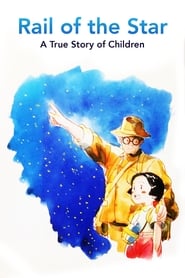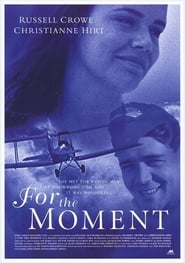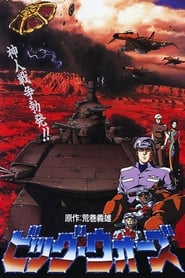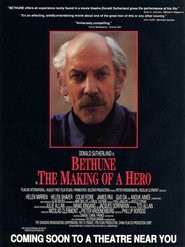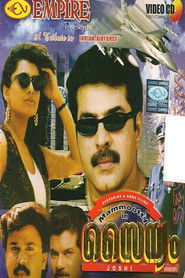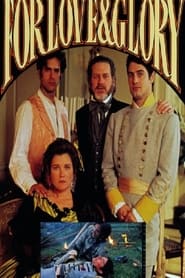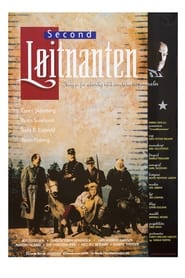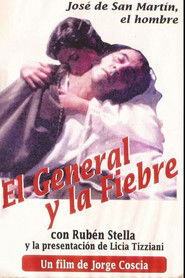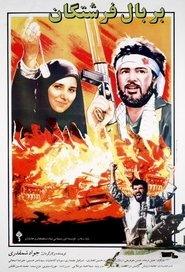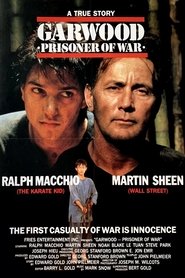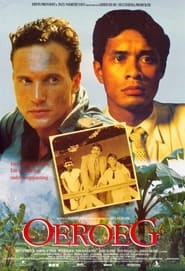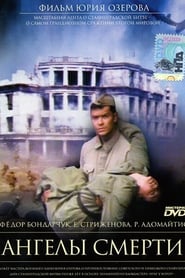New War Movies on Pantaflix - Page 279
-
Gettysburg
1993
Gettysburg
1993
star 6.9In the summer of 1863, General Robert E. Lee leads the Confederate Army of Northern Virginia into Gettysburg, Pennsylvania with the goal of marching through to Washington, D.C. The Union Army of the Potomac, under the command of General George G. Meade, forms a defensive position to confront the rebel forces in what will prove to be the decisive battle of the American Civil War. -
Rail of the Star - A True Story of Children and War
1993
star 6.1A young Japanese actress remembers her war childhood in Korea. Her father goes to fight, her baby sister Miko dies of typhoid, her beloved Korean maid Ohana is fired due to a mistake which could cost Chiko her life... By and by Chiko realizes that the country is being ruled by the Japanese and the Koreans are persecuted. When the war ends, the Koreans chase the Japanese rule and the roles change. Now Chiko's family is unwanted. But then the Russians come and this is the end. They have to burn all the pictures to avoid all suspicions... even Miko's picture. But when the Russians come to their house, they decide to flee over the 38th Parallel towards freedom. A group of men, women, children struggles along the mountains, led by the light of the Northern Star. Along the way they meet a Korean man, who is willing to help them to escape the Russian soldiers although his family was killed by the Japanese. -
For the Moment
1993
For the Moment
1993
star 5.3This Canadian film presents and old-fashioned war time romance. It is set during 1942 in Manitoba and traces the doomed affair between a young farmer's wife (Christianne Hirt) whose husband is fighting abroad and a dashing Australian pilot (Russell Crowe). The pilot has come to train in the British Commonwealth Air Training Plan of Canada. When the pilot, Lachlan, is not training, he is surreptitiously wooing Lill, the farmer's wife. At the other end of town, Betsy (Wanda Cannon) who supports her two kids by bootlegging, charges for her services. She gets involved with Zeek (Scott Kraft), an American flight instructor. -
Big Wars
1993
Big Wars
1993
star 3.7In the future, war rages on Mars. Captain Akuh and his crew are on a top-secret mission to destroy an enemy warship when an officer is stricken with an alien mind control plague. As the plague spreads, inciting madness and treason, Akuh must complete his mission, annihilate the alien battleship, and save the fate of the human race at all costs -
Bethune: The Making of a Hero
1993
star 5True story of Norman Bethune, a medical doctor who fought for justice in China during Mao's rise to power. -
Sainyam
1993
Sainyam
1993
star 7.3The story involves the life of Indian Air force officer (Group captain Eashwar) who engages himself into a project called "Red Alert" which involves the renovation of condemned Aircraft. He is 35 unmarried and interested in Research wing of Indian Air force. Eshwar is assisted by Wing Commander Zakir (Mukesh). -
For Love and Glory
1993
For Love and Glory
1993
A failed pilot about a rich Virginia plantation owner and his family caught up in the American Civil War. He has a slave for a mistress, his older son is to marry a working class Irish girl and his younger son promotes the Confederacy. -
A Foreign Field
1993
A Foreign Field
1993
Nostalgic comic drama in which Cyril and Amos, two veterans of the Normandy landings, return to France to visit the grave of their wartime buddy. They encounter Waldo, an American on a similar mission, and the meeting sparks memories of an old girlfriend from the past. With the mysterious American lady Lisa in their wake, Cyril and Waldo decide to try and track her down. -
End of the Road
1993
End of the Road
1993
Fan Long (played by Liang Chaowei), the staff officer of the National Army, escaped from the captive camp and returned to the National Army camp through all the difficulties. The soldier Ading (played by Lin Zhiying) also returned to the army, and the veteran Lao Xie (played by Wu Mengda) gave him the care of the Ading brother who lost his comrades-in-arms. Commander He of the National Army (played by Ke Junxiong) negotiated with the Myanmar side and tried to put down his weapons and return to it. Fan Long planned to save some of the weapons, but the Myanmar side killed the National Army. It all relied on Fan Long, and the National Army was able to break through. However, the team soon differentiated. Fan Long and others defected to the bandits, and Commander He led the rest to submit to the Thai government. The soldiers of the National Army who were exiled to the Golden Triangle launched an outstanding struggle for survival -
The Last Lieutenant
1993
The Last Lieutenant
1993
star 7.4Norwegian war drama. The old sea-captain retires, but the next day German WWII occupation of Norway begins. He then kisses his wife good-bye and is off to Army HQ. There he finds a lack of leadership and morale that offends him. They even laugh at him and his out-dated uniform and officer-rank. Secondloitnanten then finds and leads his private troop of volunteers against the German attack. The movie tells the story of a man that refuses to give up, even when everybody else leaves. He will fight for the country he loves and do his duty. -
Rosen-Emil
1993
Rosen-Emil
1993
star 6The ex-gymnast and survival artist Emil falls in love with the prostitute Lissy. Through her he meets some criminals whom he can help thanks to his gymnastic skills. But on his rise in the criminal hierarchy, Lissy might fall by the wayside. -
El general y la fiebre
1993
While sick in the small town of Saldán, the General José de San Martín remembers his life and achievements -
Bread & Roses
1993
Bread & Roses
1993
star 8Based upon the life of activist and trade unionist (and later MP) Sonja Davies. The film covers her life up to 1956, when, at age 33, she was elected to the Nelson Hospital Board. During this period she develops strong socialist beliefs, marries and divorces, at age 17 trains as a nurse, has a romance (and a child) with an American marine who is killed in WWII action. She battles tuberculosis and marries a former boyfriend when he returns from the war. She becomes part of a women's ill-fated campaign to save the Nelson railway line from closure and begins to be elected to political bodies. -
On the Wings of Angels
1993
Hojat, who lost his only brother in the war, suffers from not being by his side in his final years and orders a plaque in his memory to console himself. Soon, the company that Hojat successfully ran runs into financial trouble. His efforts to resolve this problem provide him with an opportunity to go back in time and review his and his brother's lives. -
Enchanted
1993
-
The Last P.O.W.? The Bobby Garwood Story
1993
star 3.5Marine Private First Class Robert Garwood spent fourteen harrowing years as a Vietnam P.O.W. only to finally be released and immediately arrested by the U.S. Marine Corps on charges of collaboration with the enemy. He is found guilty on the strength of the testimony from those P.O.W.s he tried to take care of so many years before and is branded a traitor. -
Going Home
1993
Going Home
1993
star 5.4Johan Ten Berghe joins the Dutch army when the Dutch East Indies unilaterally declare independence as Indonesia. He initiates his naive driver Twan in life in the East, having grown up there as son of colonial official Hendrik, now missing. Their adventures intertwine with Johan's childhood memories, especially concerning his native best friend, Oeroeg, who joined the rebellion, as well as their nanny and later de facto stepmother. Conflicting loyalties become tangible in extreme situations -
Angels of Death
1993
-
National Geographic: The Lost Fleet of Guadalcanal
1993
Explorer follows Bob Ballard and veterans from both America and Japan as they search for ships that were sunk during the Battle of Guadalcanal.
 Netflix
Netflix
 Amazon Prime Video
Amazon Prime Video
 Apple iTunes
Apple iTunes
 Apple TV Plus
Apple TV Plus
 Disney Plus
Disney Plus
 Google Play Movies
Google Play Movies
 Paramount Plus
Paramount Plus
 Hulu
Hulu
 HBO Max
HBO Max
 YouTube
YouTube
 fuboTV
fuboTV
 Peacock
Peacock
 Peacock Premium
Peacock Premium
 Amazon Video
Amazon Video
 The Roku Channel
The Roku Channel
 AMC+
AMC+
 Kocowa
Kocowa
 Hoopla
Hoopla
 The CW
The CW
 Vudu
Vudu
 Starz
Starz
 Showtime
Showtime
 PBS
PBS
 Pantaflix
Pantaflix
 FXNow
FXNow
 Tubi TV
Tubi TV
 Kanopy
Kanopy
 Comedy Central
Comedy Central
 Crunchyroll
Crunchyroll
 Microsoft Store
Microsoft Store
 Redbox
Redbox
 Sun Nxt
Sun Nxt
 ABC
ABC
 DIRECTV
DIRECTV
 Crackle
Crackle
 Fandor
Fandor
 Plex
Plex

